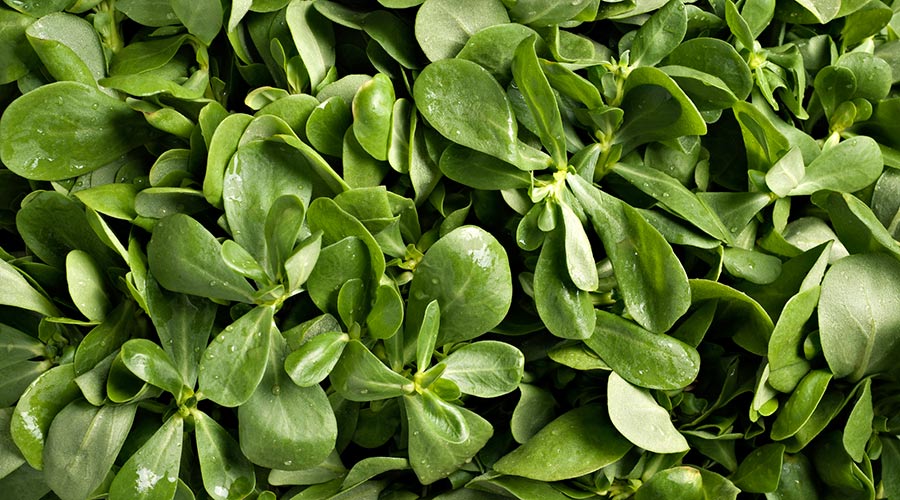The views expressed in our content reflect individual perspectives and do not represent the authoritative views of the Baha'i Faith.
Continuing His remarks, the Bab said: “It is the immediate influence of the Holy Spirit that causes words such as these to stream from the tongue of poets, the significance of which they themselves are oftentimes unable to apprehend.” … The Bab subsequently quoted this well-known tradition: “Treasures lie hidden beneath the throne of God; the key to those treasures is the tongue of poets.” – The Bab, The Dawn-Breakers, pp. 258–259.
The Baha’i teachings exalt poetry. Baha’u’llah wrote to one poet and said:
Every word of thy poetry is indeed like unto a mirror in which the evidences of the devotion and love thou cherishest for God and His chosen ones are reflected. – Tablets of Baha’u’llah, pp. 175–176.
I think that powerful poems can even become deeds sometimes. How?
In the previous article, “Thoughts as Deeds,” I mentioned Richard P. Jones’ poem, “Purslane.” Purslane is a weed. How could purslane be the proper subject for a good poem?
Well, “Purslane” is also about a horse, and a pasture, and more. But the significance of a great poem is not only what it says, but what it leaves unsaid. In other words, great art repays full appreciation.
Let’s look at the poem first:
PURSLANE
by Richard P. Jones
Inside the pasture
where someone has tended the grass
there are no purslane weeds
They must grow by themselves
(close to the ground
as they always do
where no one destroys them).
They used to be the vegetable
found most often on the table
of early settlers here
until they decided
that so little effort
meant they weren’t worth it
and turned their hands instead
to different lettuces:
iceberg & endive
romaine & escarole
and so on and so on
Well, anyway, the purslane
grows along the outside of the fence
and under the lowest level of wire
holding the pasture together.
The mare has scars on her nose
and on her throat from eating it.
Space does not permit a detailed analysis and appreciation of this great poem, so a few brief remarks will have to suffice.

Picture this pasture. It’s fenced, well-tended. The mare grazes. We gaze on the mare. As I once wrote in a poem, “If you look closely at a painting/you’ll see it begin to move.” Whether or not that’s true, if you look closely at the mare in this poem, you’ll see her begin to move.
Why? Because you will be moved yourself. If you identify, by putting yourself in the mare’s place, then you become the mare. Then “Purslane” suddenly becomes a poem about you and I, in this world, “Inside the pasture.”
The mare is fenced in. Protected, one may say. But the purslane she loves is fenced out.
The world in which the mare finds herself is the field where she grazes. Her world is ordered, bounded by a fence, with “wire/holding the pasture together.” To a certain extent, that’s good.
But if there’s something of value, which is not easily accessible, won’t we seek it out and try to find it, to benefit from it? The purslane is simply a common weed. But the mare relishes the purslane: “The mare has scars on her nose/and on her throat from eating it.”
The ending is stark, matter-of-fact, but with profound irony.
Some readers might argue that the purslane means nothing, that the poet simply wrote a pen-portrait of a mare grazing in a pasture—a story, nothing more. Other readers might argue that, if the purslane represents anything, then it’s something harmful, if not forbidden. I would point out that the mare symbolically represents all of us, striving to go beyond the boundaries of this physical world to seek the delicious beauty of what awaits us in the spiritual kingdom.
All of these interpretations can abide together.
Anyway, I consider “Purslane” to be an excellent poem, worthy of notice, and commend it for re-publication in poetry anthologies.
A poem is a condensation of thought. A good poem is a deed. An effective poem is an action—if it provokes a reaction in the reader. Thoughts can be deeds, both in this life, and in the next.
Evidently, whenever something here on earth remembers a departed soul for some good deed, that remembrance of a worthy legacy, however little-known it may be, somehow reaches the person who is remembered. I could be wrong. But the point remains: honoring the dead means honoring those living in the realm beyond, what the Baha’i writings call the “supreme concourse:”
Let us seek the song with the sweetest strains, so that it may be taken up by the angels and carried to the supreme concourse. Let us hearken to the melody which will stir the world of humanity, so that the people may be transformed with joy.
Let us listen to a symphony which will confer life on man; then we can obtain universal results; then we shall receive a new spirit; then we shall become illumined. Let us investigate a song which is above all songs; one which will develop the spirit and produce harmony and exhilaration, unfolding the inner potentialities of life. – Abdu’l-Baha, Divine Philosophy, pp. 77-78.
I hope that, in its own small way, this tribute of mine to poet Richard P. Jones—in gratitude for his role as “gatekeeper” in my efforts, and in appreciation of the sweet strains of his songs, will somehow bring my mentor happiness and further his progress in the next world.
May “Purslane” bring poet Richard P. Jones back to influential life in the popular mind, and reignite interest in his work among literary critics, so that his body of work has a continuing life of its own.
In that sense, may my tribute to poet Richard P. Jones also illustrate the subtle, ethereal—yet very real—way in which “thoughts as deeds” and “poems as deeds” can actually work in this life and the next.
You May Also Like
Comments

















Split the atom's heart, and lo!
Within it thou wilt find a sun.
Could the poet have been inspired by an intimation of the yet undiscovered science of nuclear fission?
Read by your old friend, Sandra Hutchison, from UBC days....
Thanks for your interest and comment — but this “namesake” — Richard Jones (born 1953, and still living) — is a different poet.
Richard Preston Jones was born in 1942 and died in 2010. Two links were provided in the “Thoughts as Deeds” article (to Jones’ Harvard bio, and to citations of his published work). The Harvard bio/obit is as follows:
RICHARD PRESTON JONES of Lakewood, Washington, died September 28, 2010. Born in New York City on July 25, 1942, he prepared at St. Paul's School, in Concord, New Hampshire. He lived in Kirkland House while at ...Harvard, was a member of the varsity track team and A. D. Club, and received his AB with the Class in 1964. He spent the following year in graduate study at the University of Massachusetts, Amherst, earning both an MA in English and an MFA in poetry in 1969. In the late 1970s he moved to Washington State, where he continued to write poetry and taught English for many years at Pacific Lutheran University, in Tacoma. A 1964 first marriage to Mary (Chandler) ended in divorce in 1977; his second wife of twenty years, Julia (Bramlett), died in 2005. The Class has no current information about his surviving family; in the Fifteenth Anniversary Report he listed three children, Amanda, Alexandra, and Ian.
Note: The name of Prof. Jones’ first wife should be corrected to read, “Mandy.”
Christopher Buck